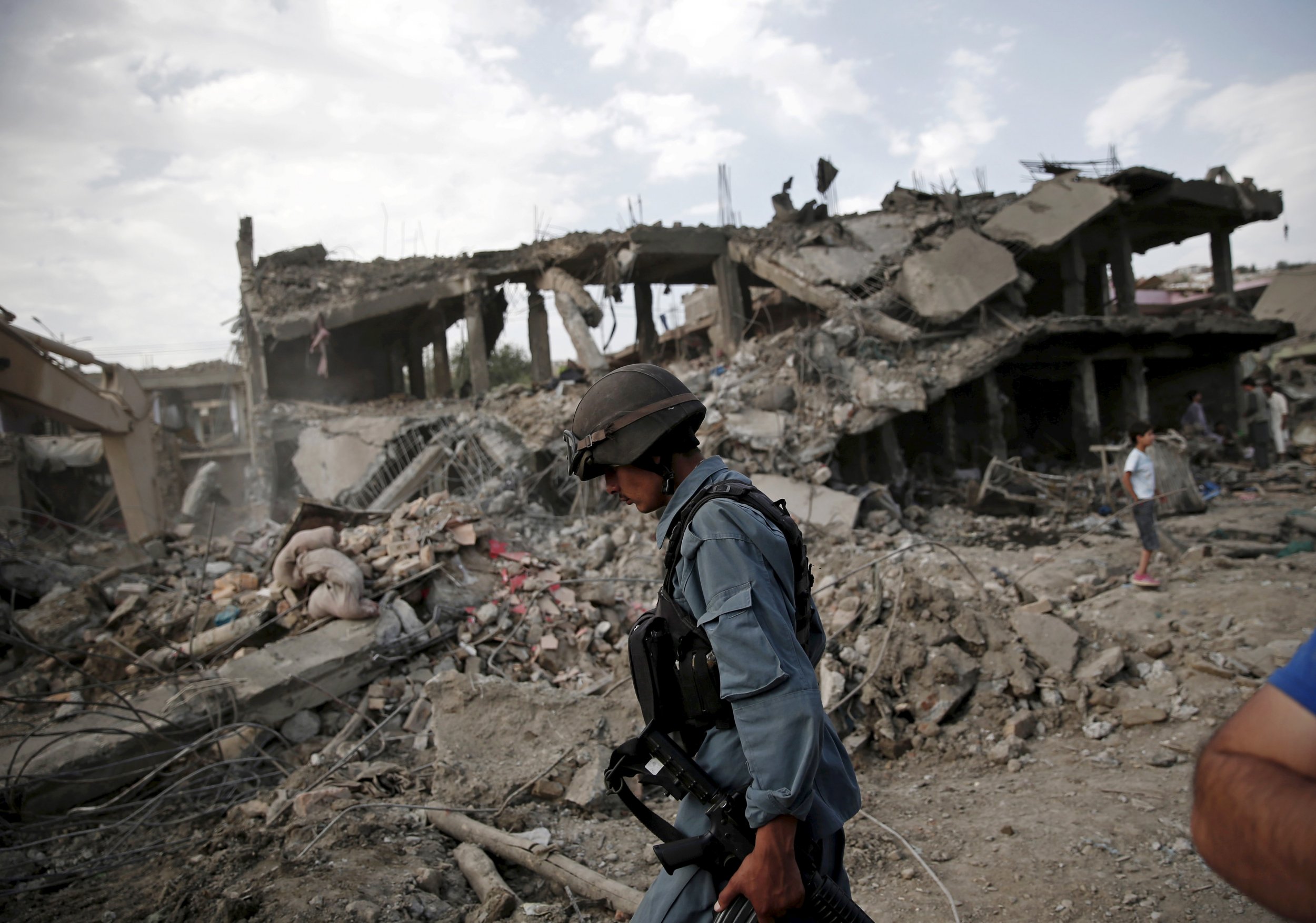
Mullah Akhtar Mansour, the new leader of the Afghan Taliban, who calls himself the "Commander of the Faithful," acknowledged and accepted a pledge of loyalty from the emir of Al Qaeda, Ayman al-Zawahiri, last week in a public message broadcast by the Taliban's media outlet.
This is an unusual open acknowledgement by the Taliban of its continued alliance with Al Qaeda and a blatant violation of the ground rules for any political reconciliation process in Afghanistan.
The Taliban's Voice of Jihad this week issued a statement of acceptance of al-Zawahiri's pledge of loyalty to Mullah Mansour that al-Zawahiri issued earlier this month on Al Qaeda's official media outlet, As-Sahab. In the statement, Mullah Mansour praises al-Zawahiri as the "respected emir" of his "mujahedeen" and urges them to continue the war against America.
In the message, Mansour tells his supporters victory is in sight after 14 years of war. America and its "infidel allies" have been "humiliated, disgraced and defeated" in Afghanistan and will withdraw their last troops in 2016 in defeat. The message implies the Taliban will allow Al Qaeda to operate freely in Afghanistan. As-Sahab has already relocated back into Afghanistan after being based in Pakistan since 2002.
The Afghan Taliban never publicly broke with Al Qaeda after 9/11, but they rarely mentioned their decades-old partnership. The major exception was when Osama bin Laden was killed in Pakistan in 2011 by U.S. SEALs—then, the Taliban praised bin Laden as a hero of the Afghan jihad.
The absence of Taliban commentary on Al Qaeda led apologists for the Taliban to argue they had abandoned Al Qaeda and were just Afghan nationalists or Pashtun warriors fighting a foreign occupation.
Al Qaeda in contrast always reaffirmed its loyalty to the Taliban, which had harbored it before and after 9/11. Without the Taliban safe haven before 9/11, the attacks would never have occurred; Al Qaeda needed its Afghan sanctuary. Bin Laden's son Hamza last week reaffirmed his loyalty to the Taliban in his first ever audio tape for Al Qaeda.
Mullah Mohammad Omar, Mansour's predecessor who died in a Karachi hospital under the protection of Pakistan's spies, the ISI, avoided the media as much as possible. His lieutenants in the Quetta Shura—the Taliban's top command council in Pakistan—knew advertising their continued links to the Al Qaeda leadership would both irritate their ISI handlers and keep the Afghan Taliban isolated as a global pariah. So they kept their ties secret.
But parts of the Afghan Taliban were less discreet. The Haqqani network, which operates very closely with the ISI, made little secret of its support for Al Qaeda. The Haqqanis have gained influence in the Taliban with Mullah Omar's departure.
Mullah Mansour faces a growing challenge from supporters of the Islamic State in Afghanistan. They claim the true commander of the faithful is the Caliph Ibrahim—aka Abu Bakr al-Baghdadi. By citing al-Zawahiri's pledge of loyalty, Mullah Mansour is seeking to affirm his legitimacy by invoking the legacy of Osama bin Laden, al-Zawahiri's predecessor and the icon of all jihadis.
The ISI probably decided the bad publicity in the West was worth the gains of stronger legitimacy for its new protégé, Mullah Mansour. Perhaps no one would even notice.
Mullah Mansour's public embrace of al-Zawahiri puts a major question mark over the future of any American-backed political reconciliation process in Afghanistan. Washington has long argued the Taliban need to renounce Al Qaeda and its global terrorist network to be considered a legitimate partner for negotiations. That policy has enjoyed bipartisan support under two presidents.
The talks between the U.S.-supported Kabul government and the Taliban earlier this summer in Pakistan, which were "observed" by America and China, have been suspended since the belated acknowledgement of Mullah Omar's death by the Taliban.
If they resume, Washington should make clear that the Taliban need to publicly and unequivocally break all ties with al-Zawahiri and his gang. Better they should be held accountable for helping bring him to justice.
No comments:
Post a Comment